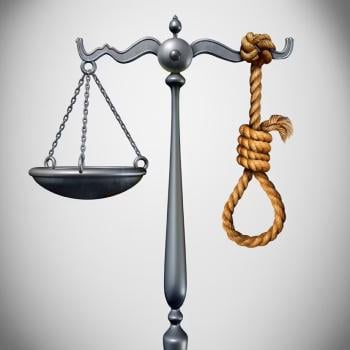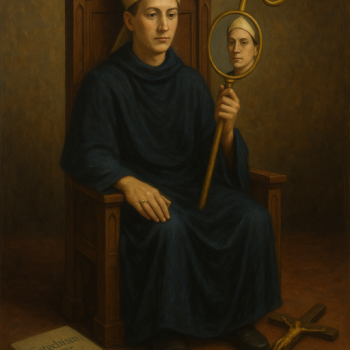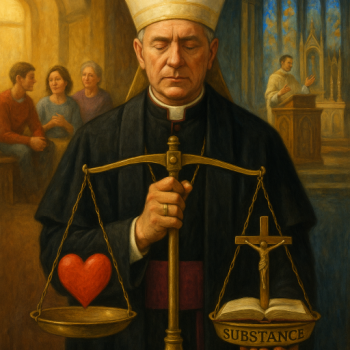 Guest writer: Pilgrim
Guest writer: Pilgrim
Introduction
Yesterday was Father’s Day. As usual my children and grandchildren gathered to celebrate the day. After a meal and a few drinks, my daughter, now in her forties, surprised me when she said: “You’ve been different the last ten years Dad. I wish you’d been like this when we were young.” My two sons agreed. I was heartened when my four-year-old grandson came to my defense; “Granddad’s got super-powers,” he said. Our favorite game involves Marvel figures. My twelve-year-old granddaughter simply said somewhat sternly,” Mum!” She and I share an interest in history, particularly Winston Churchill.
It was all said in good humor, and I brushed the remark off, but it led me to reflect on the role of fatherhood and the pressures facing men balancing finances, career, and home-life, pressures more intense today.
Fatherhood Today
Fatherhood today is often confused or diminished. The Catholic Church offers a clear, and positive vision: fatherhood is not just a role – it’s a calling, a vocation, and a mirror of the love of God the Father.
From the beginning of Scripture God is revealed to us not just as Creator (Genesis 1:1), but as Father – tender, strong, just, and merciful (Psalm 103:13). When Jesus taught us to pray, He told us to begin with the words: “Our Father” (Matthew 6:9). This wasn’t a poetic metaphor – it was the deep truth of who God is. And earthly fathers, in their own flawed way, are called to reflect that divine reality in the lives of their families. As the Catechism of the Catholic Church teaches,
God’s very being is love. By sending his only Son and the Spirit of Love in the fullness of time, God has revealed his innermost secret: God himself is an eternal exchange of love, Father, Son and Holy Spirit, and he has destined us to share in that exchange.
(CCC #221) Bottom of Form
Fatherhood As Gift and Mission
St. John Paul II often wrote about the importance of fathers in the family. He pointed to St. Joseph as the perfect example – not a man of many words, but a man of presence, humility, and unwavering responsibility.
Pope St. John Paul II writes:
St. Joseph was called by God to serve the person and mission of Jesus directly through the exercise of his fatherhood. It is precisely in this way that, as the Church’s Liturgy teaches, he ‘cooperated in the fullness of time in the great mystery of salvation’ and is truly a ‘minister of salvation.’ His fatherhood is expressed concretely ‘in his having made his life a service, a sacrifice to the mystery of the Incarnation and to the redemptive mission connected with it; in having used the legal authority which was his over the Holy Family in order to make a total gift of self, of his life and work; in having turned his human vocation to domestic love into a superhuman oblation of self, an oblation of his heart and all his abilities into love placed at the service of the Messiah growing up in his house.
(Redemptoris Custos 1989, #8)
Fatherhood, at its core, is not about control or authority – it’s about presence and sacrifice. This service extends to the sanctification of the family, guiding children in the faith (Deuteronomy 6:7), and educating them in truth and love (Ephesians 6:4).
The Wound of Absent Fathers
Pope Benedict XVI wrote candidly about a growing wound in our modern world: the crisis of fatherhood. He observed that many people today struggle to relate to God as Father because their earthly fathers were absent, harsh, or indifferent.
He writes:
The crisis of fatherhood that we are experiencing today is a basic aspect of the crisis that threatens mankind as a whole… Where fatherhood is perceived only as a biological accident… or the father is seen as a tyrant whose yoke must be thrown off, something in the basic structure of human existence has been damaged.
(“The God of Jesus Christ: Meditations on the Triune God”; 2007)
Benedict reminds us that the Fatherhood of God is the healing we long for – it’s the original and eternal model that all human fathers are called to reflect. The Church should offer pastoral care and support to those who have experienced wounded fatherhood, including at the hands of ministers, guiding them toward healing and reconciliation.
Fathers Are Made, Not Born
Pope Francis reinforced this message in his reflections on St. Joseph, reminding us that becoming a father is about accepting responsibility – not just for our own children, but for anyone entrusted to our care.
Fathers are not born, but made. A man does not become a father simply by bringing a child into the world, but by taking up the responsibility to care for that child. Whenever a man accepts responsibility for the life of another, in some way he becomes a father to that person.
(Patris Corde, 2020, #7)
Fatherhood goes beyond biology. God calls men to spiritual fatherhood, to mentorship, to protect and nurture life in many forms. Men need to be who willing to be fathers in the deepest sense – guides, protectors, and reflections of God’s heart. Priests and bishops, too, are called to be spiritual fathers, offering guidance and care to those entrusted to them (1 Corinthians 4:15). Furthermore, Pope Francis emphasized the importance of tenderness in fatherhood, echoing the gentle and compassionate love of God (Isaiah 66:13).
The Foundation of Society
These are not new, modern insights. Over a century ago, Pope Leo XIII saw the family as the root of all social stability – and the father as one of its primary guardians In the foundational text of Catholic Social Teaching, “Rerum Novarum” he describes the family as a “society of a man’s house – a society very small, one must admit, but none the less a true society, and one older than any State.” He emphasizes that the family has rights and duties that are independent of the State. He asserts that the “domestic household is antecedent, as well in idea as in fact, to the gathering of men into a community, the family must necessarily have rights and duties which are prior to those of the community and founded more immediately in nature.”
On fatherhood he says:
a most sacred law of nature (is) that a father should provide food and all necessaries for those whom he has begotten,” recognizing the father’s right to transmit property to his children through inheritance, ensuring their well-being. He argues against excessive state control over the family, stating that “the contention, then, that the civil government should at its option intrude into and exercise intimate control over the family and the household is a great and pernicious error.
A New Voice: Pope Leo XIV
In May 2025, the Church welcomed Pope Leo XIV, formerly Cardinal Prevost. While his early words as pope haven’t focused directly on fatherhood, they have been grounded in the dignity of the family and the protection of life. “The family must be founded upon the stable union between a man and a woman,” he said in his first address to diplomats. He called governments to support families as the foundation for peace (Vatican Address, May 2025).
With his Augustinian roots and pastoral heart, it’s likely Pope Leo XIV will continue the Church’s emphasis on fatherhood, especially within the context of marriage, mercy, and mission, seeing the role of fathers as leading their families towards God through love, discipline, and the pursuit of virtue (Philippians 4:8).
Conclusion
A strong, loving father strengthens communities, churches, and nations. He helps to uphold the family as the “domestic church,” where faith is nurtured and lived out daily (Acts 2:42). In the face of contemporary challenges such as homosexual and gender ideology and the devaluation of marriage, the Catholic father is called to stand as a beacon of truth, upholding the sanctity of marriage (Matthew 19:6) and the dignity of each person (Genesis 1:27).
Fathers, young and old, should know that our vocation matters more than we perhaps always realize. Our sacrifices, presence, our willingness to apologize for mistakes, to bless, to teach, to protect, are not always easy. We are called to reflect the face of the Father. A father’s active and loving presence is indispensable for the growth and well-being of his children. “Train children in the right way, and when old, they will not stray” (Proverbs 22:6).
And if our relationship with our own father or our children is complicated – or wounded – we should have faith that God the Father longs to fill every absence with His perfect love. In His heart, every wound can be healed, and every man can be restored to the fullness of his calling.
Whether through birth, adoption, mentorship, or spiritual guidance, fatherhood is ultimately about one thing – becoming a living reflection of God’s Fatherly love in the world (1 John 4:19).
Perhaps I wasn’t the ideal father – none of us are. There were years I put work first, worried about finances and career. But it’s never too late to be a father again. Grace doesn’t work on our schedule. It starts small – one apology, one attempt to show up without excuses. Our children, even in adulthood, don’t need us to be heroes. They just need us to be human.
Thank you!
If you liked this article, please leave your comments below. I am very interested in your opinion on this topic.
Read The Latin Right’s other writing here.
Please visit my Facebook page and IM your questions (and follow my page) or topics for articles you would like covered.
Also, please subscribe my YouTube page for updates on upcoming articles.













